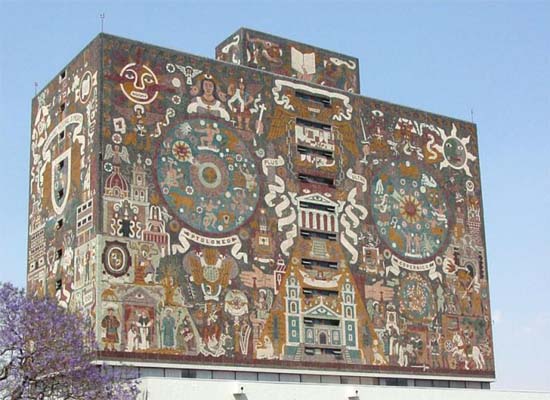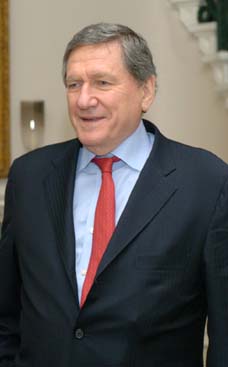
This is the new face of the Peace Corps: older - often retired - volunteers, many with years of professional training or advanced degrees, who work with foreign government agencies to advance environmental and scientific goals on their own. Launched in 2005, the Peace Corps Mexico program is a prototype, supporters say, of what the volunteer program should be in many parts of the world. The average age of a volunteer in Mali, where the Boston-born Battle was also country director, was 24. In Mexico, it is 48 (including one 79-year-old), the result of increased Peace Corps recruitment through professional organizations and the AARP. Under the Mexico plan, the country's government reviewed the resumes of Peace Corps-approved applicants, and selected a team of economists and ecologists to work with its own environmental protection agencies. The Mexico program requires five years' experience - and, preferably, a master's degree - for participation. While volunteers perform some field work - married couple Ben and Buffy Lenth, both Colorado ecologists, routinely go into the Sierra Gorda mountains to conduct environmental tests - the Mexico-based volunteers spend much time in offices, helping Mexican officials run their own programs.
The Peace Corps Model for Mexico is to Send Older Specialized PCVs
In Mexico, demand increases for specialization
By Susan Milligan
Globe Staff / April 19, 2009
SAN LUIS POTOSI, Mexico - Susan Quackenbush sits behind her desk at a Mexican government office, examining environmental data and images of Mexico's endangered wetlands. Her colleague, Sandy Jimenez, helps doctoral students prepare English-language papers for scientific journals. Shane Runquist is a specialist in geographic information systems, and went to Mexico to assist agencies in interpreting geographic data for zoning and municipal planning.
Ready to join them are new recruits to the Mexico program - a mid-career economist and State Department veteran, several PhDs, and a contingent of retirees eager to accept subsistence wages to work with foreign government agencies.
This is the new face of the Peace Corps: older - often retired - volunteers, many with years of professional training or advanced degrees, who work with foreign government agencies to advance environmental and scientific goals on their own. Launched in 2005, the Peace Corps Mexico program is a prototype, supporters say, of what the volunteer program should be in many parts of the world.
"I think of it as a diversification - a pilot program that could work in many countries," said Byron Battle, country director for Peace Corps Mexico. While there is still a place for the traditional Peace Corps program, with "kids living in an African village," the Mexico program could be replicated in other parts of Latin America and in Asia, where developing nations are more hopeful of specialized assistance than an eager pair of hands.
Under the Mexico plan, the country's government reviewed the resumes of Peace Corps-approved applicants, and selected a team of economists and ecologists to work with its own environmental protection agencies. The Mexico program requires five years' experience - and, preferably, a master's degree - for participation.
The average age of a volunteer in Mali, where the Boston-born Battle was also country director, was 24. In Mexico, it is 48 (including one 79-year-old), the result of increased Peace Corps recruitment through professional organizations and the AARP.
While volunteers perform some field work - married couple Ben and Buffy Lenth, both Colorado ecologists, routinely go into the Sierra Gorda mountains to conduct environmental tests - the Mexico-based volunteers spend much time in offices, helping Mexican officials run their own programs.
Jimenez, who describes herself as "well into my 60s," pictured herself "in a shack, in the middle of Africa" - perhaps teaching villagers how to grow vegetables - when she decided to join the Peace Corps. Instead, she goes to a government research center, helping advanced-degree students on scholarly papers.
The Peace Corps' Mexico approach not only augurs well for a successful project - programs are more likely to endure if they are seen as locally run - but for better diplomacy, Battle said.
Like people in many countries, Mexicans are skittish about US influence; Marcial Bonilla, a Mexican official with the country's science ministry, said locals in San Luis Potosi worried that the first group of Peace Corps volunteers were CIA agents. And volunteers said many Mexicans were wary of being lectured by their more powerful northern neighbor.
Working as partners with the Mexican government eases that tension, said Battle, who tells new volunteers never to use the words "help," "assistance," or "consultant" when working alongside Mexicans.
"We're trying to learn about team and to integrate, not to influence them or tell them how to do things," Battle said.











